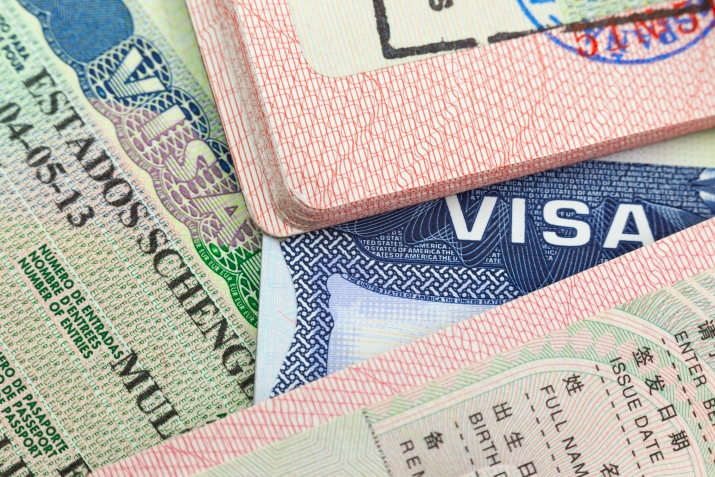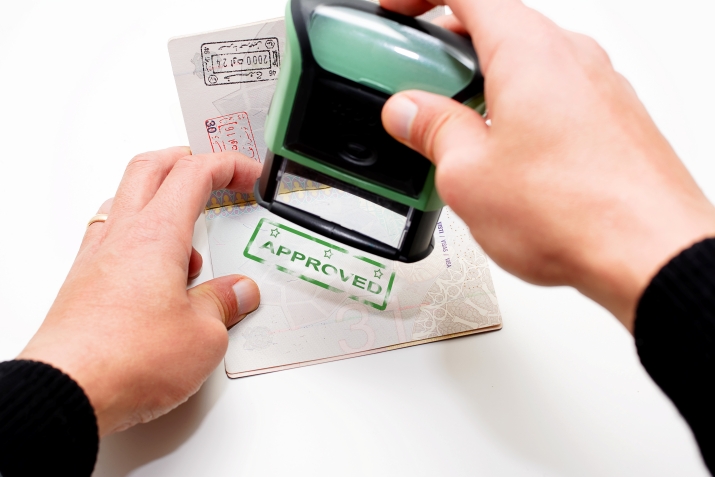
Working in Europe
Table of Contents
Professionals always look for jobs in Europe. If you are planning to work in Europe as a professional, you are at the right place!
Who can work in Europe? What is required to get a European work visa? Can I get employment in Europe with a working Schengen visa? This article will give you the right answers to all these questions. You may be pretty surprised to see what you think is right and wrong about working in Europe. But by the end of this article, you will definitely have an idea about working in Europe!
This content includes:
- Europe Work Visa
- What Are the Requirements for a Europe Work Visa?
- How To Get European Work Visa
- What Is the Best Date to Apply for a Europe Work Visa?
- How Long Is the European Work Visa Valid for ?
- Best Countries in Europe To Live And Work
- Jobs in Europe for English Speakers
- Frequently Asked Questions for Working in Europe
Europe Work Visa
Schengen countries have their work visa policies. European countries regulate their work visa policies to meet business needs and close the workforce gaps where necessary. In other words, all European countries create their work visa conditions in a way that makes up for their deficiencies.
Who Needs A Visa To Work in Europe?
Citizens of the United States, Australia, Canada, Israel, Japan, New Zealand, Switzerland, and the European Union don’t have to submit a work visa application to enter Europe. Even so, once they arrive in the nation in which they will starting to work, they must apply for a residence and work permit.
Citizens of other countries must apply for and obtain an employment visa prior to actually entering the Schengen for the purpose of working.
Who Can Work in Europe?
Many European states create attractive programs to employ foreign professionals. In other words, there are many job opportunities in Europe for foreigners. To benefit from these job opportunities and to work in Europe, it is necessary to meet the criteria and conditions under the procedures of European countries.
On the other hand, if you have obtained a National D-Type Visa from one of the European countries in the Schengen Area, you can also work in the Schengen Area.
How To Get European Work Visa
You need certain documents when applying for a visa to work abroad in Europe. In the list below, let’s examine the documents you need to obtain a work visa.
Required Documents
- Application form: You must fill out the application form completely and sign.
- Valid passport: You must present a passport that is not older than 10 years and is valid for three more months after the trip ends. At least two pages must be blank to affix the label of the work visa.
- Two identical photos: You need two photographs taken within the last three months that meet the visa application criteria.
- Travel health insurance: Before obtaining the visa, you must have health insurance valid in all Schengen countries. It has to cover medical expenses of up to €30,000 against medical emergencies.
- Proof of accommodation: A rental agreement or reservation information of the place where you will stay during your stay in Europe is required.
- Round trip flight reservations: Note that flight numbers and entry and exit dates from Europe must be included.
- Business arrangement: An employment contract must be concluded between you and the company you will work with, indicating that you will work in the Schengen area.
- Academic information: There must be evidence of your academic background, such as a certificate, diploma, transcript, or graduation certificate.
- Evidence of language proficiency: Most countries expect proficiency in their official language, even for a short time. Proof of language proficiency by taking international exams may be required.
Tip: These requirements are standard documents for applying for a European work visa. Each European state may require additional requirements according to its visa policy.
How To Get a Work Visa in Europe
Here are the steps you need to follow carefully to get a Europe work permit:
1. Check Out Your Options
Find out which employment visas are offered by the country in which you want to work in Europe. You must apply for the Employment Visa that suits you.

2. See If You’re Eligible
Find out if you can get a valid European work visa in the European Union.

3. Make Your Research
Research the requirements of the EU work visa thoroughly. Some European countries may require you to find a job in their country before applying for a work visa. Therefore, apply for European jobs and see if you can meet their criteria.

4. Collect the Documents
Gather the necessary documents for issuing a work visa for jobs in Europe.

5. Arrange Your Interview
One of the essential steps when applying for a European work visa is to arrange a visa interview. Schedule an interview that fits your schedule.

6. Show Up at Your Interview
When you go to the visa interview, bring the documents you have collected. Also, give clear and descriptive answers to questions. Don’t make statements that do not match the information in the submitted documents.

7. Get Your Visa
Wait for your visa response. If the answer is negative, find out why it is negative. You should try to make up for these in your next application.

Note that these steps are standard when obtaining a Europe work permit. The steps you need to follow may vary depending on the European country you are applying to.
What Is the Best Date to Apply for a Europe Work Visa ?
It is recommended that you apply for a visa two months before your trip to the European country where you will go to work. Because under certain conditions, it can take up to six weeks for European embassies to process work visa applications. Also, in extraordinary circumstances, the processing time for a European work visa can take up to three months.
How Long Is the European Work Visa Valid for ?
The work visa issued by many European countries is valid for up to one year. You can still apply for a visa extension before the work visa expires.
Do not forget to examine the visa sticker affixed to your passport carefully. The validity period and other important information can be found on the label of the European work visa.
Best Countries in Europe To Live And Work
Being central location located is a big plus if you wish to travel and work in Europe. If you don’t understand a foreign language, it is best to concentrate your efforts on nations where English is the native tongue or is widely spoken. Trying to move to Ireland, for example, will be far easier than moving to a region of Scandinavia where English is not widely spoken. Luckily, numerous resorts employ native English speakers to communicate with American and other English-speaking visitors.
Popular destinations for American expats involve:
- 1. Germany
Berlin is a very metropolitan and world class city, and English is widely spoken.
- 2. France
While jobs available in Paris can be limited, tourist spots in the south offer a plethora of service industry possibilities.
- 3. Spain
There are countless teaching opportunities in more rural areas of Spain that offer an excellent chance to make a living while experiencing European life.
- 4. The Netherlands
If English is your only language, the Netherlands is an excellent place to look for work. There are numerous opportunities in the oil and gas industry, as well as in the fields of science.
- 5. Italy
For many individuals, life in Italy is a dream come true! It may be easier to get job in the hotel sector than it is to break into the corporate world.
Jobs in Europe for English Speakers
Opportunities in Europe for Americans might vary depending on the firm. Jobs in Europe for expats are frequently at the bottom or top of the professional ladder, with nothing in the center.
Because English is commonly used in commercial contexts, obtaining foreign careers for English speakers is frequently simpler than locating opportunities in other languages. Naturally, some of the greatest employment in Europe for English speaking are with American or Canadian corporations with international offices or operations.
Native English speakers are in popular in the tourist industry, as many European visitors come from the U. S., Canada, the Uk, and other English-speaking countries.
There are several career opportunities for Americans in Germany where English is the predominant language, such as the car manufacturing sector (Volkswagen Group, Daimler AG, and BMW), the financial services business (Allianz), and the industry manufacturing sector.
Frequently Asked Questions for Working in Europe
Where to apply for a visa for Europe jobs?
For a European work visa to work in Europe for foreigners, you must apply to a legal institution in the country where you plan to work.
Here are the places where you can apply for a European visa:
- Their embassy
- Their consulate
- Visa application center
Can a European work visa be extended?
You can extend a work visa in many European countries. For this, it is to notify the authorized institutions of your time extension request before your work permit in the European country you are in expires. As a result of this request, your application is processed, and some documents are requested.
How much does a European work visa cost?
The fees for the work visa vary according to the European country you are applying for. You should ask the relevant official authorities to get the most accurate and up-to-date information.

